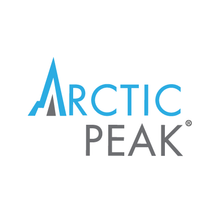
4 Reasons why the Arctic is key to our planet’s survival
The Arctic; consisting of deep ocean covered by drifting pack ice and surrounded by continents and archipelagos around the Earth's North Pole, the Arctic is the planet's largest and least fragmented inhabited region.
While our planet contains five oceans - the Atlantic, Pacific, Indian, Arctic and Southern (Antarctic) - it is the Arctic Ocean that is most susceptible to climate change. In fact these changes are happening in front of our eyes; we have already lost over half the Arctic summer sea ice.
There are four reasons why the Arctic Ocean is distinct from other oceans and critical to our planet’s survival:
First, while this relatively small (by ocean standards) marine environment holds only 1% of the world’s ocean volume and occupies only 3% of the world’s ocean surface area, its impact on the global climate system is disproportionately large.
Second, though small in area, it scoops up over 10% of global river runoff and claims twenty of the world’s 100 longest rivers.
Third, the Arctic marine domain comprises about a third of the world’s coastline.
And Fourth, the Arctic Ocean contains one-quarter of the world’s continental shelf, of immense socio-ecological importance.
On all counts, the little Arctic Ocean holds its own on the global stage.
Despite its importance, the Arctic Ocean sometimes goes missing from public ocean-talk as more ‘local’ marine issues take centre stage. A key point is to recognize that the Arctic Ocean is different from other oceans and it is the critical driver of the global oceanic conveyor belt. For example, the Gulf Stream and North Atlantic Current are strongly regulated by processes that occur in the Arctic. The Arctic Ocean is remote to many of us, but its influence can be felt everywhere.
How do we know this? Oceanographers have robust scientific evidence on the role the Arctic plays within our planet. For instance, the global hydrological cycle determines the distribution of water around the planet – and affects food and water security globally. This cycle begins in warmer climates, with the equatorial trade winds and mid-latitude westerlies. It is refined and shaped by the global distribution of land masses that, in the northern hemisphere, collect precipitation and direct it poleward through massive rivers. These rivers introduce substantial amounts of fresh water into the upper layers of the Arctic Ocean, providing the required conditions for an ice cover to form, and regulating nutrient supplies and biological productivity.
But these dynamics are undergoing unprecedented and worrying changes that are already visible. Over many years, scientists have been recording changes in global temperature, hydrological cycles and sea-ice cover. These changes have all had significant and eminently observable effects on the Arctic Ocean. Over the past two decades alone, summer sea-ice coverage in the Arctic Ocean has decreased by about seven million square kilometres to just over 3 million square kilometres. This loss represents a surface area larger than all but about a dozen countries in the world.
Worryingly there are big changes in Arctic sea-ice cover, freshwater supply, nutrient availability and the underwater light climate which are taking place at an accelerated pace, with associated shifts in seawater chemistry and biological activity, and alterations to habitat and food-web structure that are affecting the entire ocean. Ocean waters are growing more acidic, and oxygen concentrations have decreased by nearly 8% over the past 50 years alone. From this perspective, it seems inevitable that the ongoing and rapid changes in the physical environment of the marine Arctic will push existing socio-ecological systems - small and large - beyond tipping points and into new regimes.
Now, more than ever, it is imperative to close the gap between our knowledge of the rapidly changing Arctic Ocean and the corresponding development of new ideas and innovative policies from the public and private sectors to ensure the ocean’s long-term sustainable use and resilience.
The Arctic Ocean has given us a screaming wake-up call – what goes on ‘up in the north’ comes with a high cost to societies around the world, and the Arctic and its Ocean are a key barometer of global risk. It's time for us to listen.

